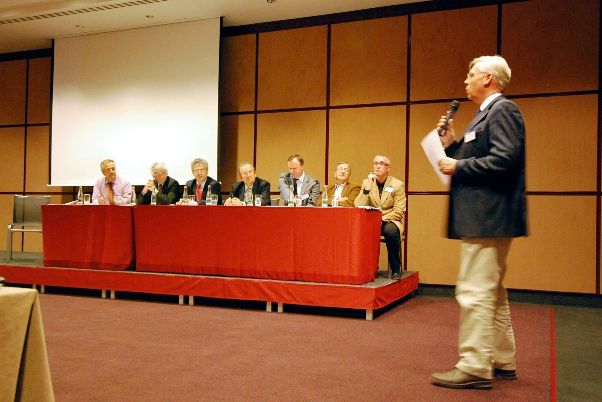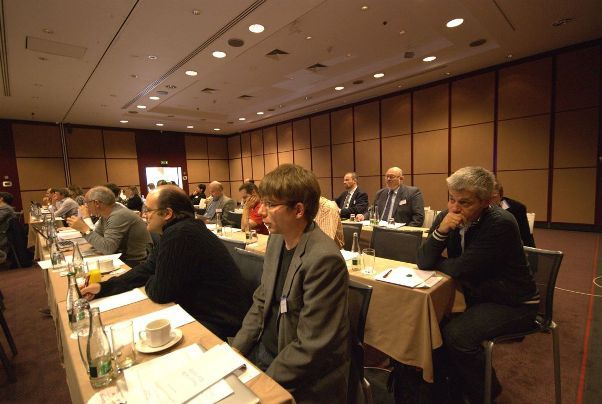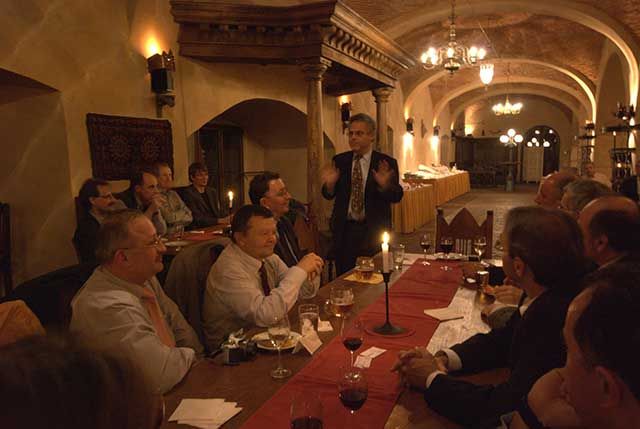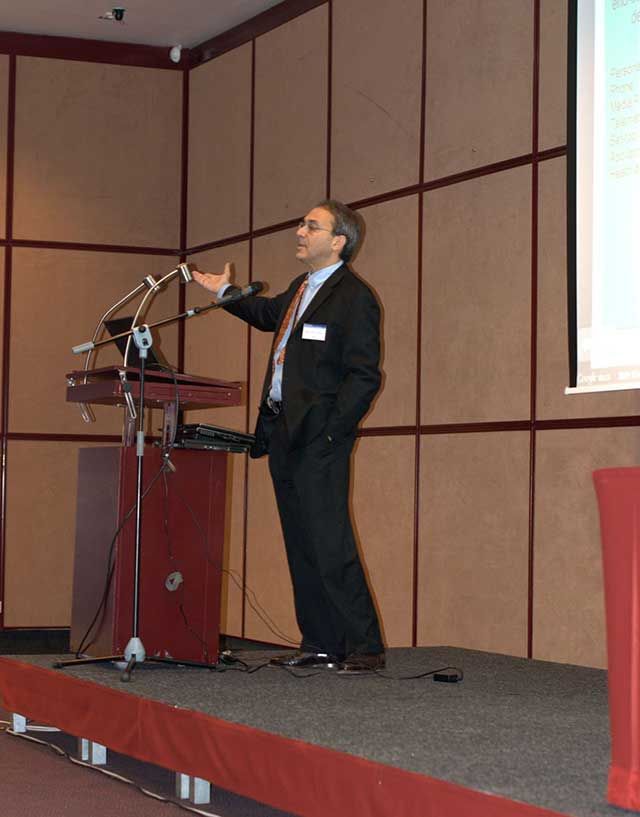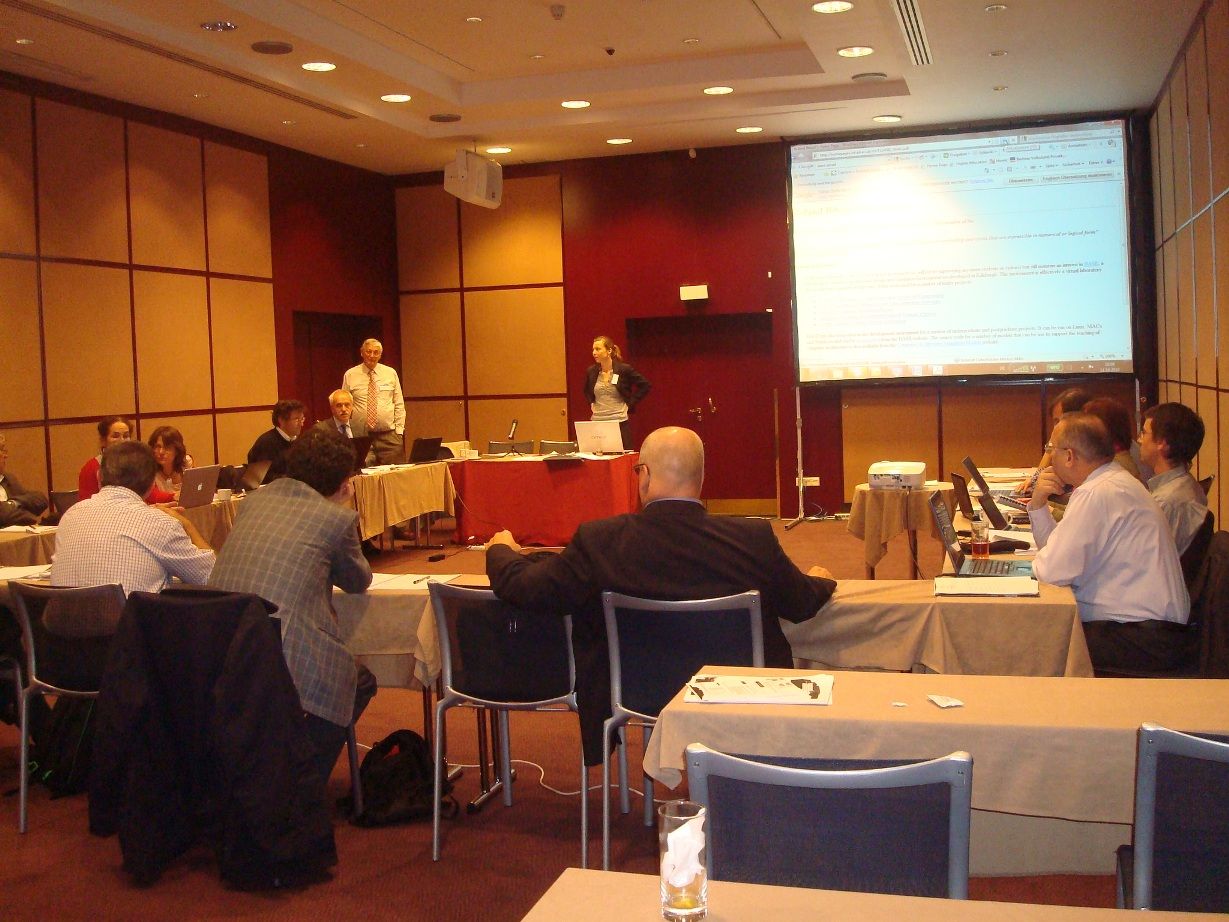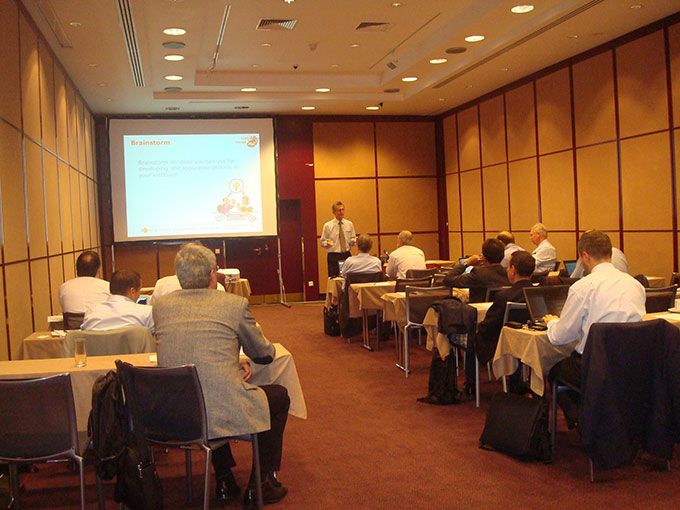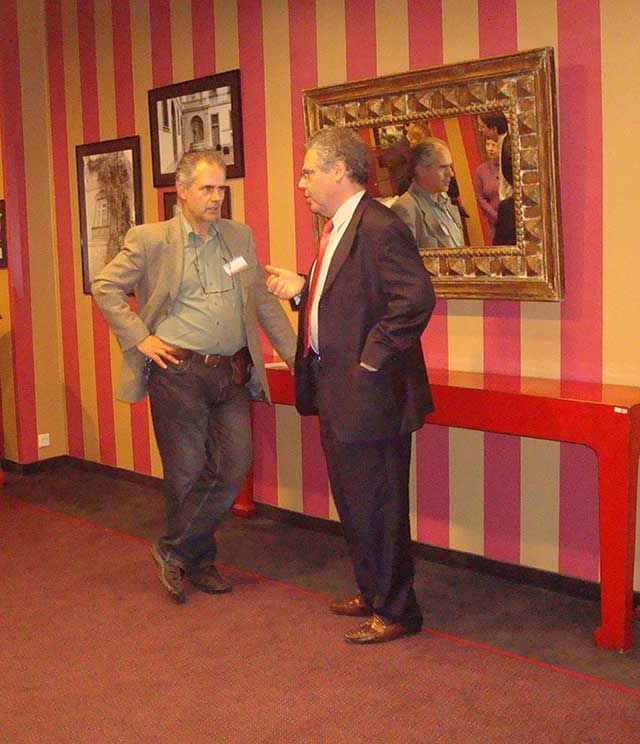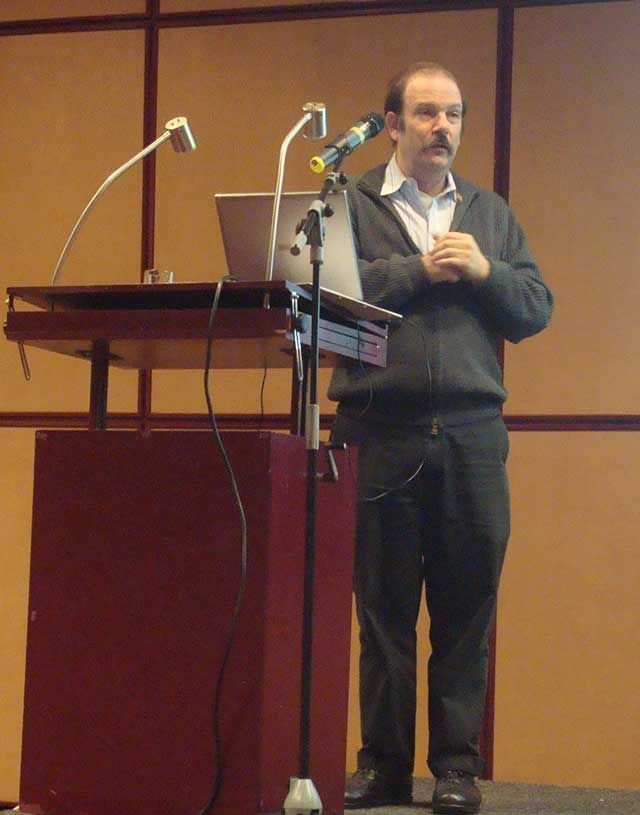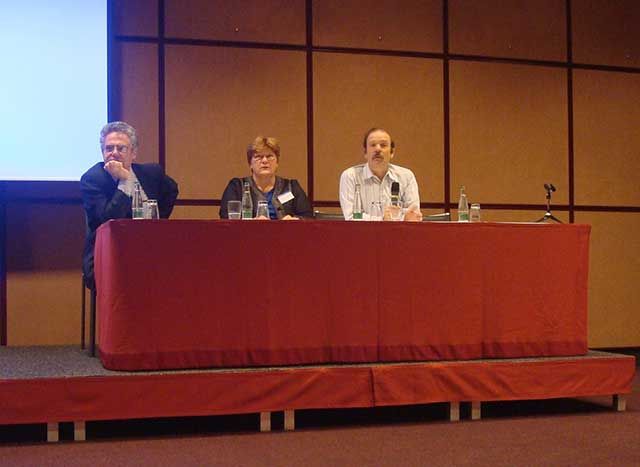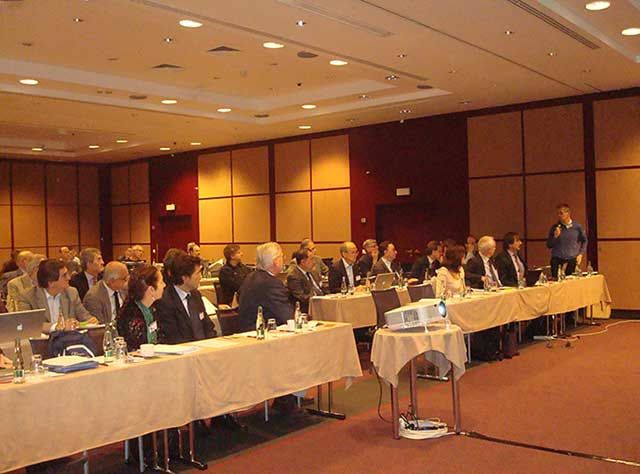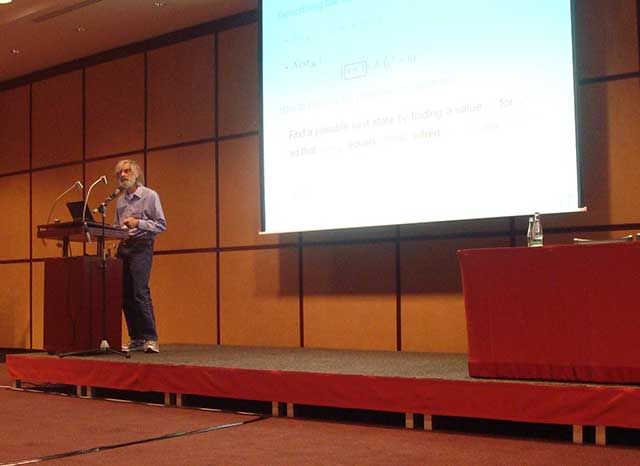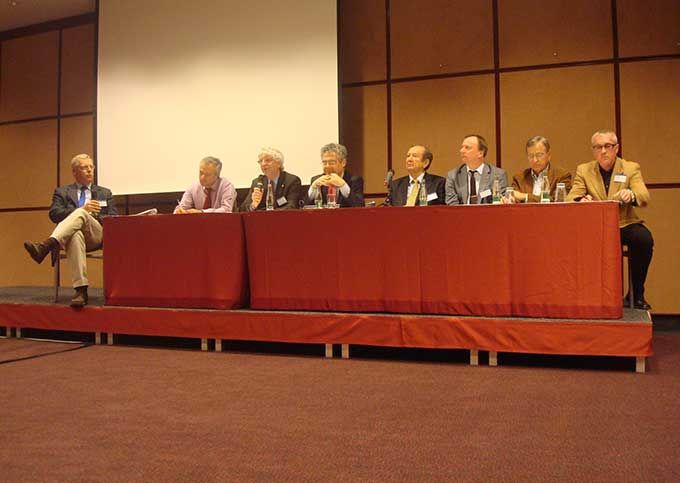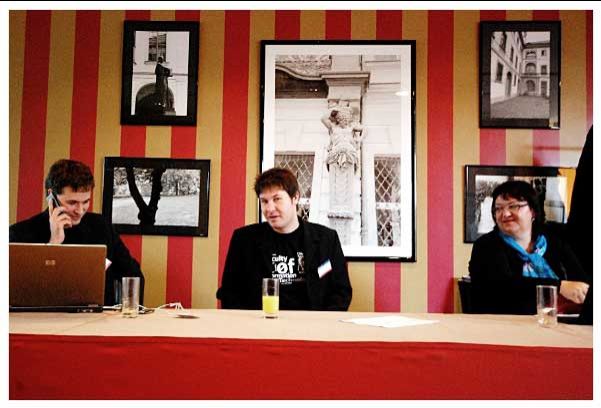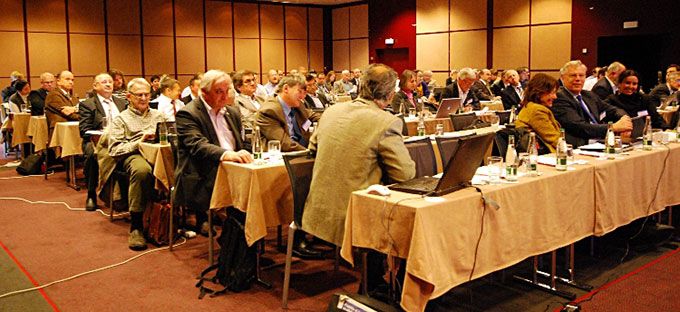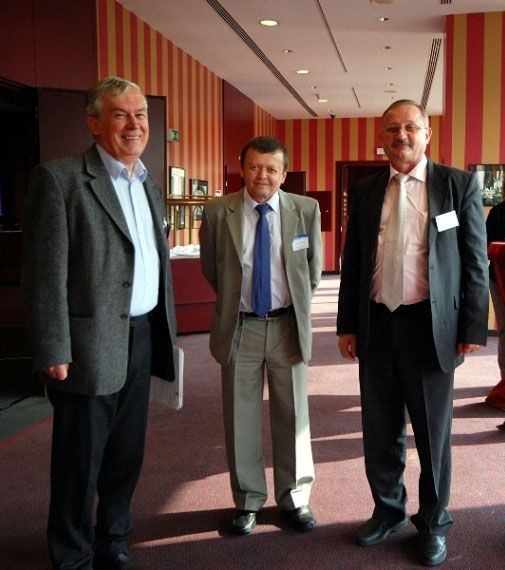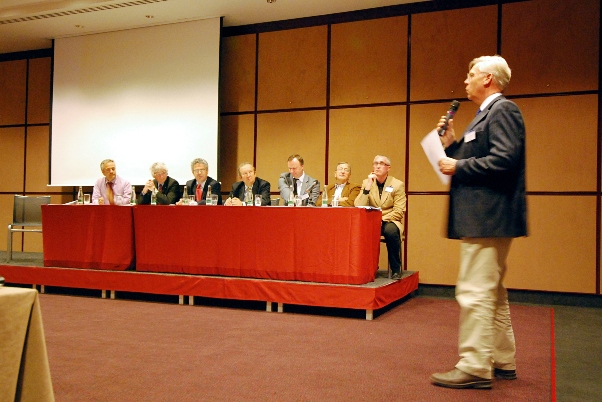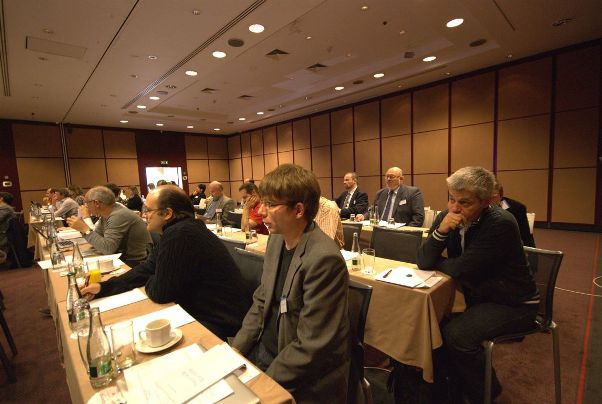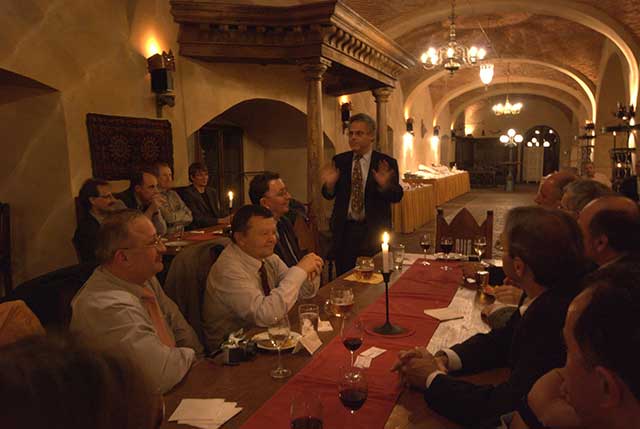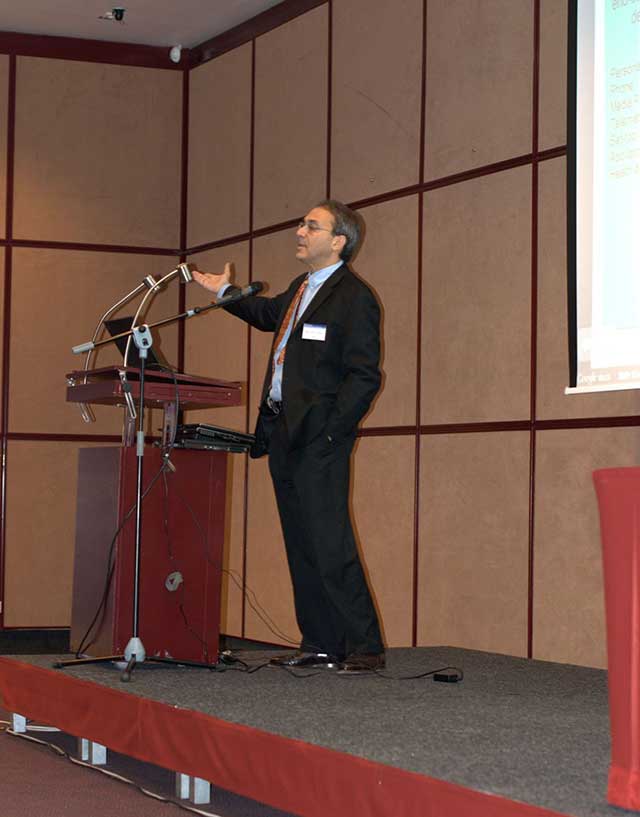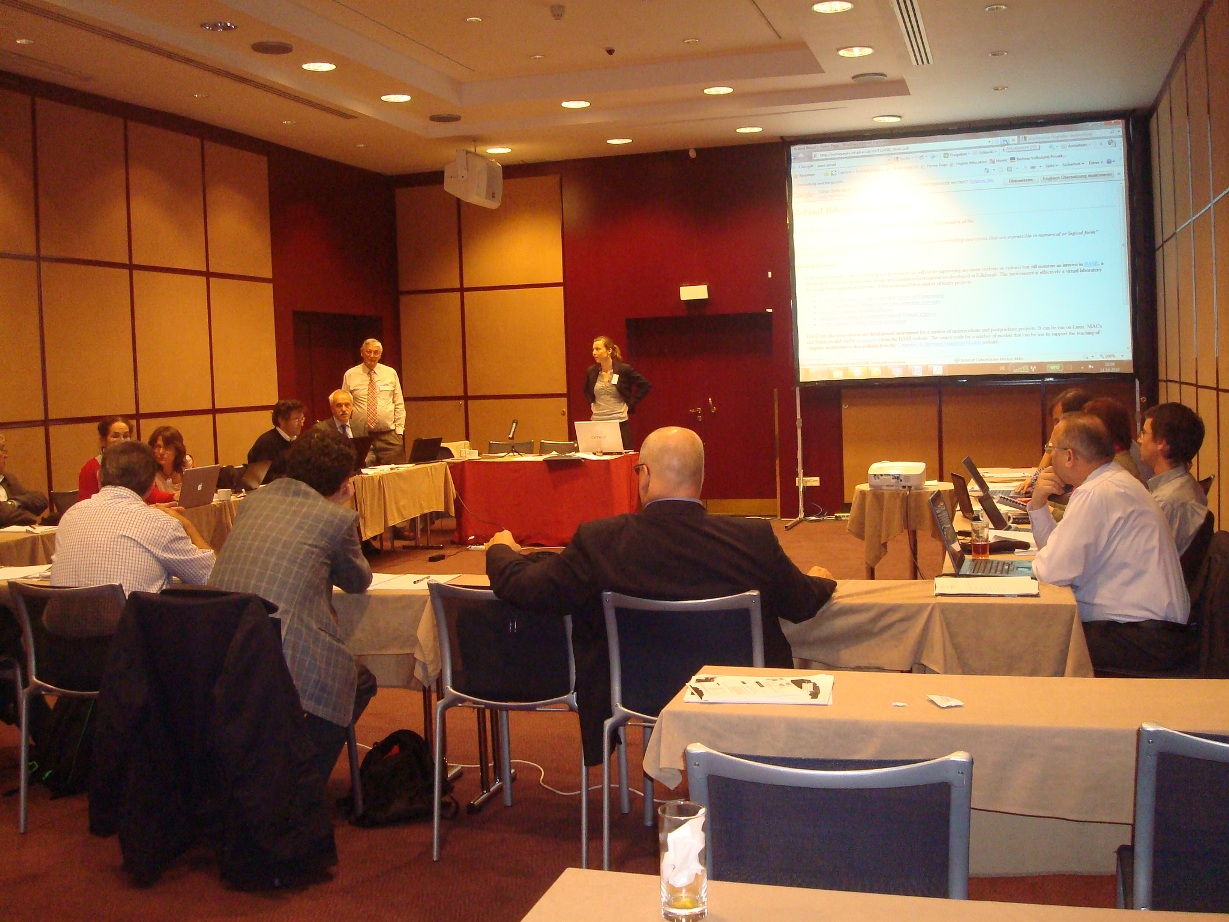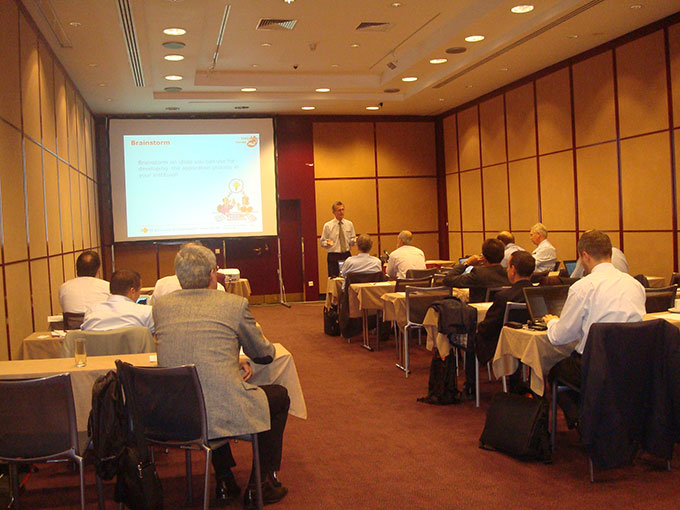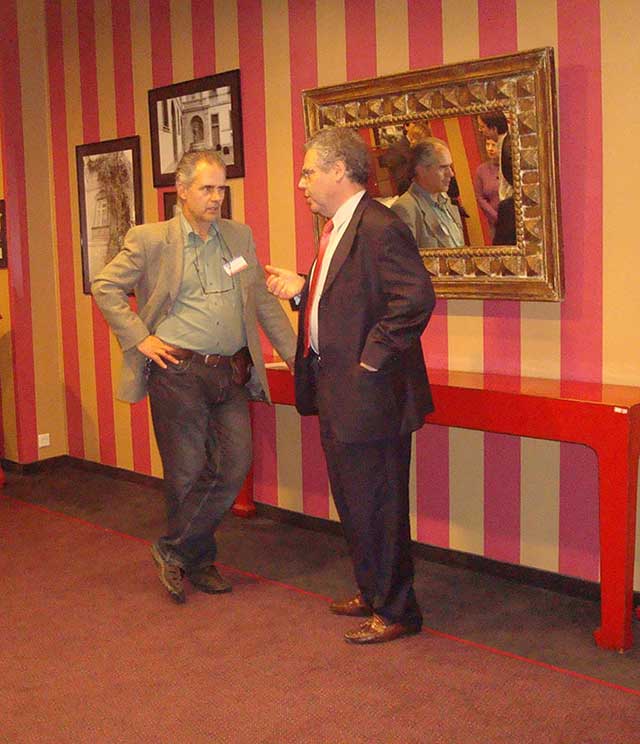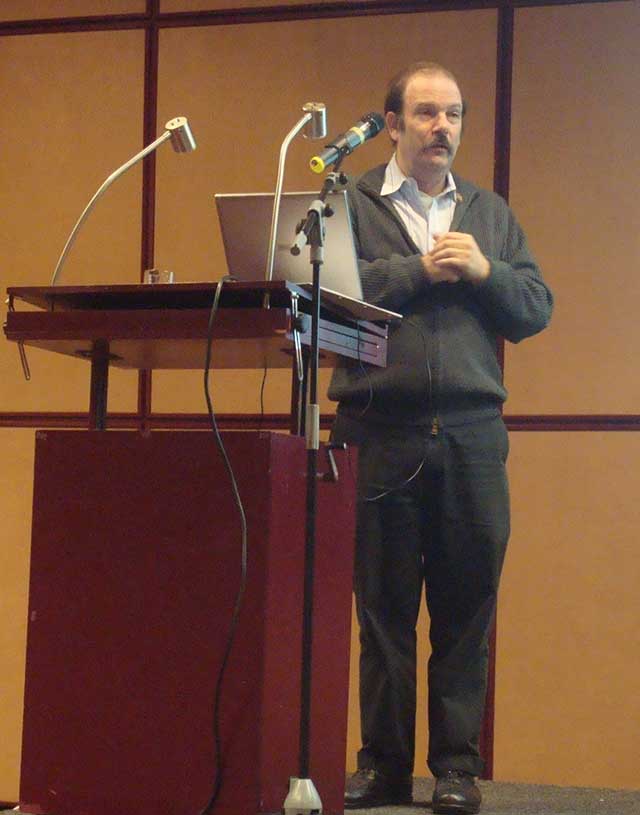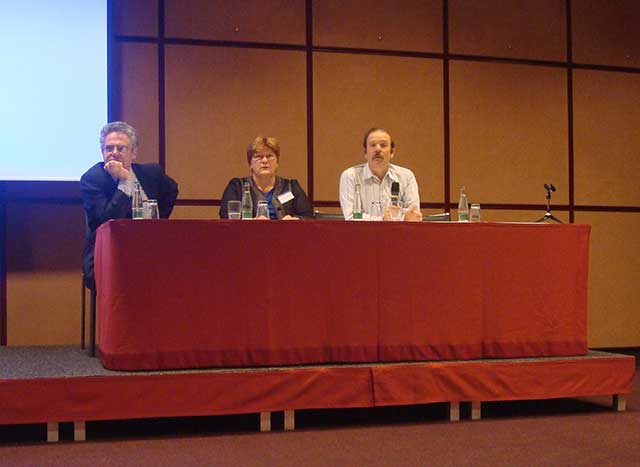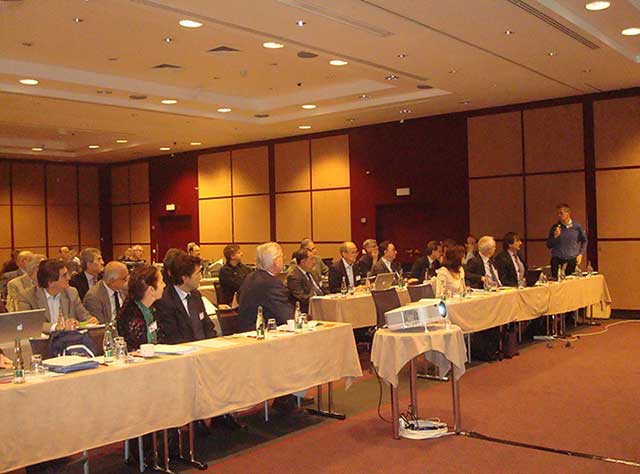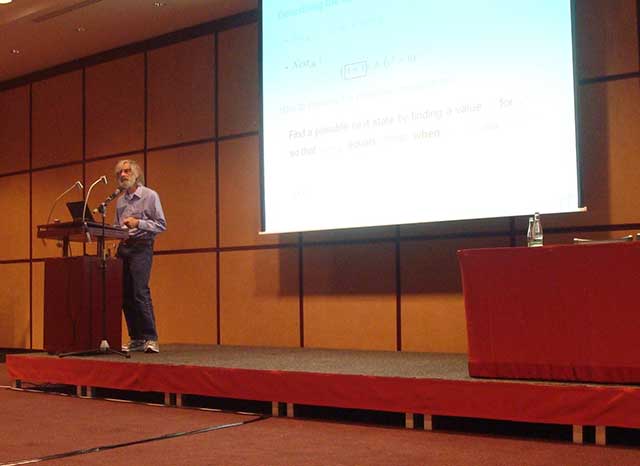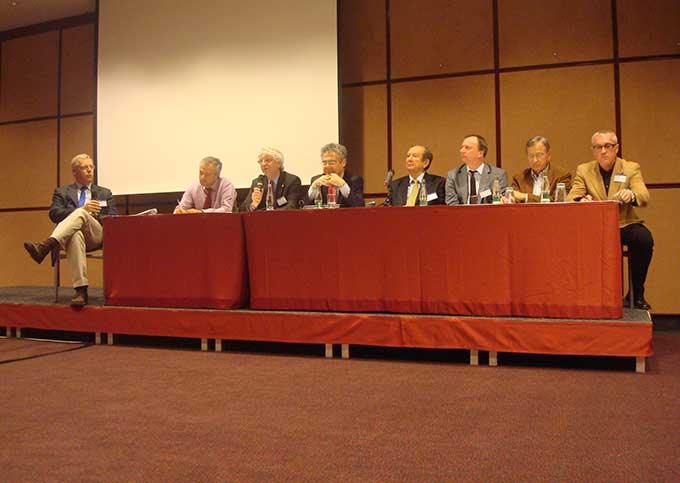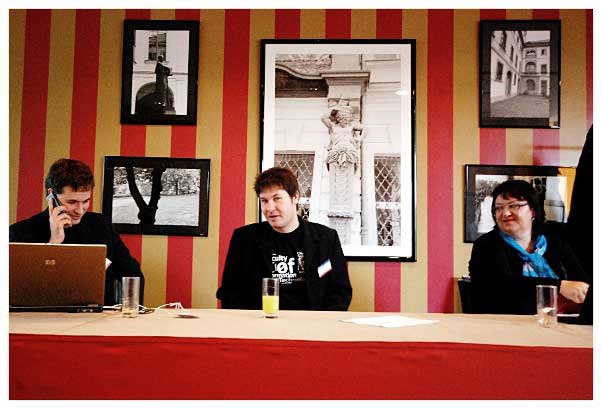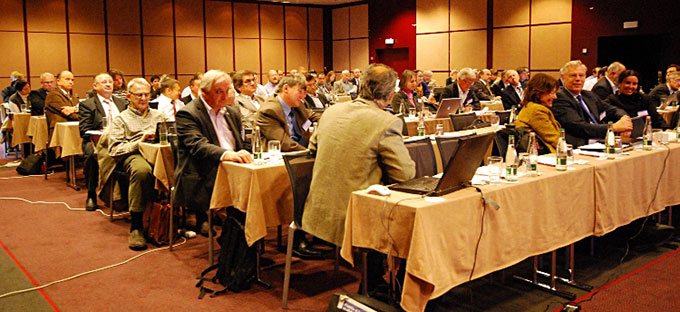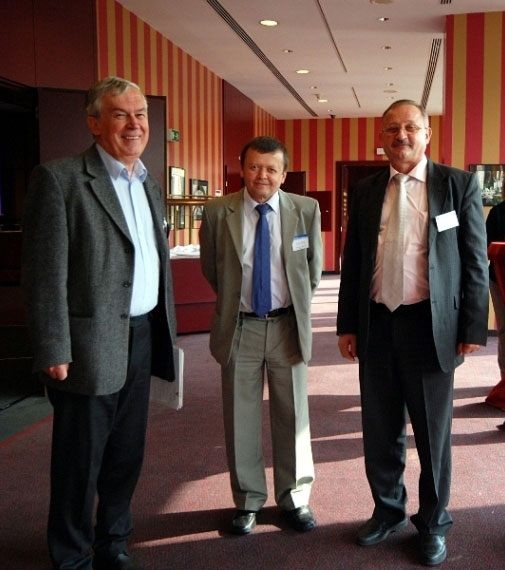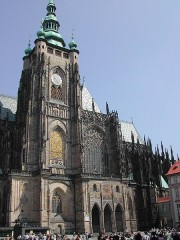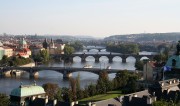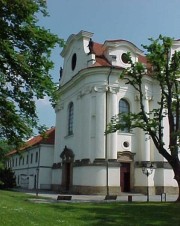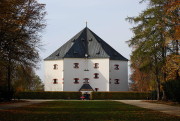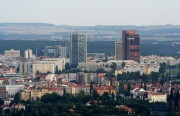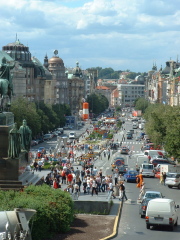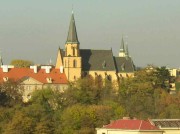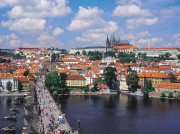ECSS 2010 - Highlights
During three beautiful days the historical city of Prague hosted deans, department chairs, research directors, senior faculty and researches from academic and industrial institutions from all over Europe and beyond, united to participate in the 6th edition of the European Computer Science Summit. ECSS is annually organized by Informatics Europe and a member institution; this year the co-organizing partner was the Faculty of Information Technology at the CTU in Prague. More than 115 participants joined the Informatics Europe community contributing to a memorable event.
On October 11 around 50 participants gathered for two pre-summit workshops that addressed topics of central importance to the community: Research Leadership and Quality Assurance in Informatics Education. On a hands-on fashion the participants had the opportunity to share their experiences, exchange best practices and build relationships among different European Informatics research and education institutions.
Pictures by Frauke Muth and Cristina Pereira
The main Summit opened on October 12 with the brilliant and provocative, keynote talk of Moshe Vardi, Editor in Chief of the Communications of the ACM, who brought to the audience a critical description of the evolution, actual status and peculiarities of the scientific communications and publishing culture in the field of Computer Sciences. Supporting his line of thought with intriguing metaphoric-philosophical parallels, Moshe Vardi not only entertained the audience, but also started a warm and fruitful debate on a topic of central importance to the scientific community.
The second keynote of the day, by Jan Sedivy, presented an insider's perspective on the rapidly evolving area of speech recognition, with historical aspects, its latest developments and applications in the area of mobile devices. The presentation also included practical demonstrations where the audience could observe a recently developed application for speech recognition in smart phones and benefit from the speaker's broad experience.
The following keynote speaker, Sabine Kruspig, director of the computer section of the European Patent Office, included in her presentation a brief historical perspective of computer-implemented inventions and an overview on the organization of the European patent system and patent grant procedure. The presentation also highlighted the most important aspects involved in patent granting and intellectual protection rights of computer-implemented inventions.
The morning session also included a discussion panel with Moshe Vardi and Sabine Kruspig, which provided an excellent opportunity to extend and deepen the stimulating debate raised by both previous presentations.
Closing the morning session, three short presentations featured new projects and initiatives currently under development by Informatics Europe. Overviews and recent developments in the Department Evaluation and Research & Education Portal projects were reported together with the first announcement of the newest initiative of your association: the Informatics Europe Best Curriculum Practice Award, which fosters the improvement of computer science education.
The afternoon session was dedicated to the special session "European research funding: understanding it, obtaining it, and applying it". The session opened with the inspiring and highly informative keynote talk of Carlo Ghezzi from the Politecnico de Milano, sharing his personal successful experience in obtaining an Advanced Researcher Grant in the first call for contributions of the European Research Council. The session included also three stimulating short presentations by Luciano Baresi (Politecnico di Milano, Italy), Patrick Furrer (Euresearch, Switzerland) and Jan Gruntorad (CESNET, Czech Republic) who brought their perspectives and experiences, providing the participants with a clear picture of European funding mechanisms, practical advices for submitting successful grant applications and examples of national diversities and realities when dealing with EU funding. Patrick Furrer brought the special experience of a National Contact Point for ICT.
Tuesday evening the participants gathered in the unique ancient Restaurant Vikárka (in the core of the Prague Castle region) for the conference banquet and enjoyed the very special meal and atmosphere.
The last day of the conference started with the Annual General Meeting of Informatics Europe which gathered the association's members present in the conference for the annual report on finances, the year's activities, organizational developments and future plans. Many non-members also attended the meeting. Members voted for the only formal decision subject to a vote: the launch of the Department Evaluation initiative, approved unanimously.
The first keynote speaker of the day, Alfred Spector, vice president of Research and Special Initiatives of Google, highlighted in his presentation the current developments, challenges, newest projects and societal impact of one the most influential companies of the world.
Following, Andrey Terekhov from St. Petersburg State University presented an excellent overview and historical developments of the software industry and research in Russia over the past decades. He emphasized the special nature of Russian software outsourcing, focused on quality, and described its origins in the difficult years of the early nineties when Russia was in a deep economic crisis and the creation of software companies literally allowed software experts to avoid going hungry.
Wendy Hall, from the University of Southampton, representing ACM, highlighted in her presentation the current and future roles of the scientific societies featuring the examples of the UK Royal Society, ACM and the British Computer Society. The central place taken by the web in driving the modern scientific societies as well as the constant need of sound and attractive services to its communities were important aspects mentioned by Wendy in her lively presentation.
The program followed with three parallel sessions that included presentations, selected from the submitted contributions, on topics of wide interest to the informatics community: Curriculum Design, Research Evaluation, and ICT Research Issues.
The afternoon session of the last day of the summit started with the keynote of Leslie Lamport, one of the world's most renowned computer scientists, from Microsoft Research. Leslie Lamport brought to the audience a rigorous lecture on the mathematical foundations and the very essence of computation.
The 6th ECSS closed with the special session "The Future of European Scientific Societies in Informatics". The keynote talk of Franco Accordino, from the European Commission, addressing the topic "Digital Science and Its Impact on Scientific Societies" opened the session that included also an extensive discussion panel gathering the representatives of major European associations in Informatics: Vasile Baltac (CEPIS), Brian Bigalke (Create-Net), Keith Jeffery (ERCIM), Jens Knoop (EAPLS/EASST), Bertrand Meyer (Informatics Europe), Burkhard Monien (EATCS) and Franco Accordino, representing the European Commission. The panel was moderated by Jan van Leeuwen, who played a brilliant role in mediating a complex issue with profound implications for the future of all stakeholders in Informatics. The panel concluded with a concrete agreement to meet again in a few weeks in Brussels with a view to joining forces.
Informatics Europe thanks the organizing committee in Prague (Profs. Pavel Tvrdik and Josef Hlavac and Ing. Jindra Vojikova) for a flawless, professional event organization, Google for the very generous sponsorship, and the participants and speakers for making this a memorable ECSS.
The slides of all presentations are available on the conference program page.

